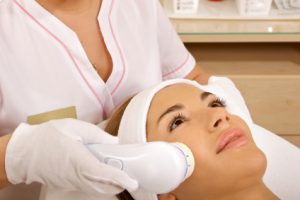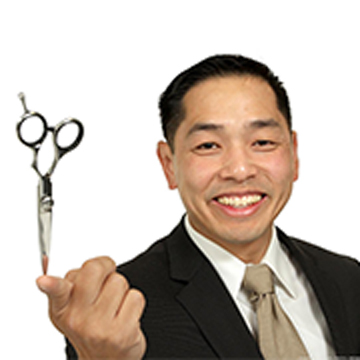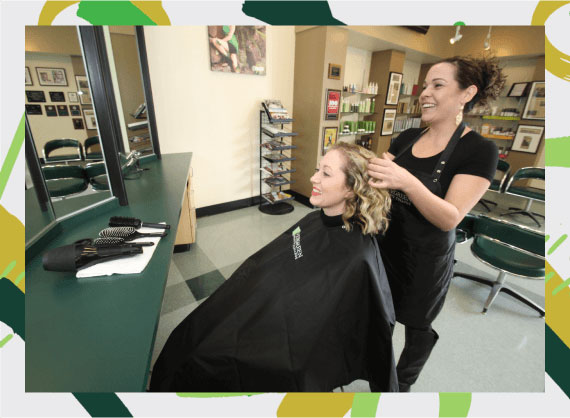Master Esthetician Washington State – Credentials
I received an email from one esthetician that asked, “Frank, in the second requirement of the Grandfather Clause: A national or international diploma or certification in esthetics that is recognized by the department by rule … what certification are they talking about?”
That is what the public hearings are going to define. What most are hypothesizing, it will be naming these three:
1. CIDESCO Beauty Therapy Diploma: Commite International d’Esthetique est de Cosmetologie is an international beauty therapy association that was founded in 1946 in Zurich, Switzerland. It represents a standard in esthetics in more than 30 countries.
2. ITEC: International Therapy Examination Council is an international specialist examination board founded in 1947. It provides qualifications in Beauty & Spa Therapy, Hairdressing, Complementary Therapies, Sport & Fitness Training and Customer Service/Business/Administration.
3. NCEA Certified Credential: The National Coalition of Estheticians, Manufacturers/Distributors & Associations (NCEA) was founded in the United States in June 2000. It is a coalition of associations, manufacturers/distributors, schools, and individual esthetician members. The mission of the NCEA is to define standards of practice through certification and continuing education accreditation in order to represent and advocate for the esthetic profession.
The above summaries are part of a recent article entitled published by Helen Lawrence, BS in May 2013 entitled “The Comparative Analysis – Are all esthetics credentials created equal.” It was a wonderful summery, comparing and contrasting the differences of these credentials.
All three of these credentials are well respected. However, all three are different. The more I research, estheticians with these credentials have gone above the required education for the states and are dedicated to extensive studies of the profession. However these credentials do not necessarily show their mastery of the practice of Master Esthetics as outlined in the new laws in House Bill 1779.
What Helen Lawrence concluded in her article was:
CIDESCO: A licensed Esthetician who obtains the CIDESCO Beauty Therapy Diploma completed 1200-hours of training but, 250-hours were in nails, which is not an allowed task by esthetician licensees in the United States.
ITEC: A licensed Esthetician who obtains an ITEC qualification, the completed hours of training could vary from an additional 338 hours–to only 50 hours falling well-short of the 1200-hour standard for a Master Esthetician license.
NCEA: A licensed Esthetician who obtains the NCEA Certified credential in an undergraduate program has a full additional 600 hours of training. If a licensed esthetician obtains the NCEA Certified credential post-graduate, they are required to pass the national examination with a 75% or higher. The examination is based upon a 1200-hour standard Master Esthetician license.
Employers assume that a Master Esthetician licensee has the skills and abilities to perform a wide variety of services. In order for this to be true, Master Esthetician job skills need to be evaluated. Only two associations have surveyed skills required in a 1200-hour Master Esthetician license–the National Interstate Council of State Boards of Cosmetology (NIC), and the National Coalition of Estheticians, Manufacturers/Distributors & Associations (NCEA).
Master Esthetician licensing is being driven by the profession, industry; including schools, and employers. To ensure ongoing safety of consumers and licensing standards, there needs to be a thorough review of the current data that is readily available on each association’s website.
In the spirit of full disclosure, we need to understand that this article was on the NCEA website so it may not be entirely objective. What we do understand is there are significant differences in these credentials and if the state of Washington will consider these as method of grandfather, we need to explore the rational.
I’m beginning to write my response to share at the rules hearing and will definitely be addressing this.
Please follow me on my blog and I would love to hear your thoughts below. If I don’t know the answer, I’ll do my best to research it. I will be giving input at the public hearings as a member of the educational sector and know that there are other questions and perspective and that the Department of Licensing needs to hear from you.






If I have my NCEA license and my esthetician license from another state, would this be accepted as a masters esthetician license when I go to transfer to Washington? Thank you
The NCEA certification would have been taken into consideration during the grandfathering period, but am not sure if that still holds any consideration. The best thing to do is to reach out directly the the Cosmetology Board. You can contact them directly at Washington Department of Licensing / Phone: 360.664.6626 / Fax: 360.664.2550 / Email: plssunit@dol.wa.gov
If i have my cosmetology license am i able to joing the ncea program to obtain my master esthetics license? Or would i need to get my esthetics license before i joined the program.
It’s best to reach out directly to the NCEA